Pakistan Air Force denies China helped military acquire armed drones
Air chief marshal says Pakistani engineers developed technology on their own; Washington should increase coordination
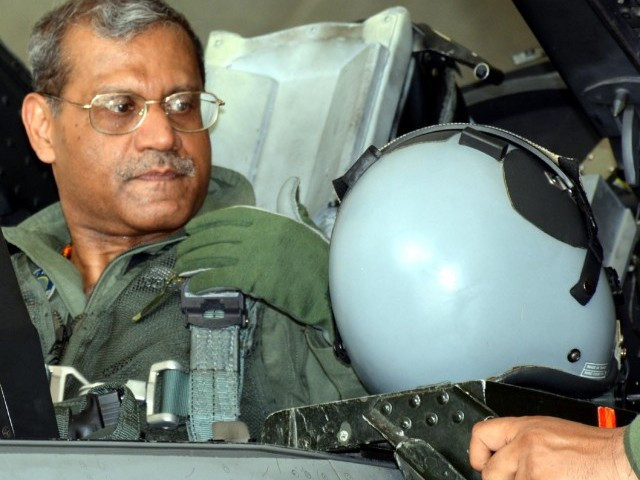
PHOTO: INP
“Pakistani engineers developed the technology on their own,” Air Chief Marshal Sohail Aman said in an interview with The Washington Times, adding that Washington should increase coordination with Islamabad to target and eliminate al Qaeda and other terrorist groups.
The air chief marshal also suggested that the long drawn hostility surrounding US President Barack Obama's series of covert drone strikes in Pakistan may finally come to an end now that the country has its own fleet of the missile-equipped unmanned aircraft.
Read: China supported, designed or supplied Pakistan's first indigenous drone, claim analysts
Last month, Pakistan said it had for the first time deployed a locally manufactured drone that killed three ‘high-profile’ terrorists in North Waziristan Agency. Though the development raised concerns within US national security circles, Aman ensured, “No big concerns have come in.”
Earlier, defence analysts claimed Pakistan’s first indigenous armed drone is likely to have been supported, designed or supplied by China.
Neil Gibson, a weapons analyst with a weekly defence-based magazine, IHS Jane’s, said, “Close analysis of imagery released by Pakistan suggests at least a heavy debt to Chinese systems”. The Burraq, he added, “strongly resembles” China’s CH-3 UAV.
Read: In a first, ‘Burraq’ strikes in Shawal Valley
Pieter Wezeman, a senior researcher at the Stockholm International Peace Research Institute (Sipri), also said China must have helped Pakistan if it did indeed produce a UAV that goes beyond basic reconnaissance. “Developing a drone with armed capability is much more difficult than just a reconnaissance one because the reconnaissance one can be built with very basic technology, but integrating weapons is a different level,” he said. “Either it is a Chinese UAV or based on Chinese technology.”
Air chief marshal to visit US this week
While Prime Minister Nawaz Sharif is scheduled to visit President Obama at the While House this month, Aman will be visiting his American counterparts this week.
According to reports, Aman has not specifically asked US defense and intelligence agencies to provide targeting information for Pakistani drone strikes; however, he stressed that the success of the ongoing Operation, Zarb-e-Azb to eliminate terrorism from the Federally Administered Tribal Areas (Fata) should be sufficient to erase any questions regarding Islamabad’s viability as a counterterrorism partner.
Read: Pakistan’s military is true to its word, says General Campbell
“It’s a question of trust,” he said. “We have to have 110%,” the air chief Marshal stated while asserting that cooperation between Pakistan and the US is stronger now than it has been at any other time since May 2011.
“When you do campaigns together, when you have shared objectives, then you strategise together and you build each other’s capacities,” he said. “I think the [US] has been a great supporter and great help of the precision engagement that we have. The surveillance capability that we have had to make these operations go couldn’t have been possible without the [US] support.”
Earlier, communications between the two countries came to a halt as a result of a secret helicopter and commando raid carried out by US special forces which allegedly killed Osama bin Laden in Pakistan.
Further he admitted that regardless of funding from the White House for Pakistan's military in 2012 to help fight terrorism, relations improved when PM Nawaz announced the onset of Zarb-e-Azb in North Waziristan.
Read: Pakistan probably knew Bin Laden’s whereabouts, says former ISI chief
Though mistrust over the Bin Laden raid lingers, Aman said it should not.
The air chief marshal said there should be no question about Pakistan’s commitment to targeting al Qaeda terrorists, including Bin Laden successor Ayman al-Zawahri..
Read: Pakistan military ranked 11th strongest in world
Coalition Support Fund
Aman further discussed the restraint on Pakistan's military from entering Afghanistan where al Zawahri has reportedly taken shelter.
He claimed that the hesitation is due to Islamabad's respect for Afghan sovereignty and brotherly ties. However, he acknowledged that militants continue to move across the border and Pakistan's forces would be at a better position if Washington showed willingness to provide certain ‘radar' to better track such movement.
This article originally appeared on Washington Times


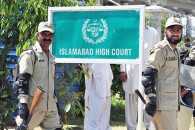
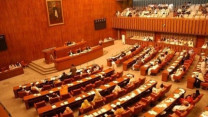
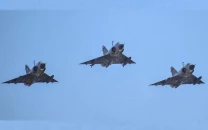




1733130350-0/Untitled-design-(76)1733130350-0-208x130.webp)
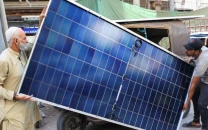

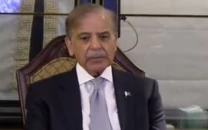






COMMENTS
Comments are moderated and generally will be posted if they are on-topic and not abusive.
For more information, please see our Comments FAQ